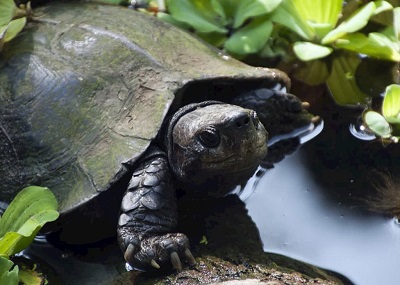Protecting wildlife helps to pass on the priceless values of nature to future generations. We would like to present the reasons why wildlife needs to be protected as well as solutions to protect them in the article below.

The role of wildlife protection
Currently, there are about 1,556 species of wild animals in the world that are identified as endangered and near-extinct and need urgent protection. In tropical forests, the shelter of more than half of the creatures currently existing on earth is also shrinking, causing many species of countless wild animals to disappear because their habitats are destroyed. Protecting wild animals in nature is a very necessary issue.
Benefits of wildlife protection for humans
Biodiversity
There are approximately 15 million living organisms on Earth today. Each individual is part of a complex, delicately balanced network called the biosphere. In turn, the Earth’s biosphere is made up of countless ecosystems, including plants and animals, and their natural habitats.
No study has yet fully shown how wildlife species affect each other, but if in the same ecosystem there is a disappearance of one species, it will cause a chain reaction affecting other species. Especially with species that play an important role in the ecosystem, their extinction will cause unpredictable consequences.
Contribution to medicine
In the struggle for survival with other living creatures, wild animals have also found many ways to resist bacteria and cancer cells. They create new molecules that scientists have never known. Research and understanding the characteristics of these animals will help scientists find new and effective treatments for diseases that seem incurable.
In addition, the bodies of many wild animals also contain quite useful chemicals, serving the production of pharmaceuticals. Antibiotics, pain relievers, anti-cancer drugs and hemophilia drugs today all have raw materials from these wild animals. In the US, more than 1/4 of the prescriptions listed contain substances found in animals and plants. Therefore, protecting wild animals is extremely necessary because if they are harmed, their medical benefits will disappear.
Agricultural benefits
Many seemingly useless wild animals have also shown important benefits in the agricultural industry. Farmers often use insects and insectivorous animals to destroy pests that harm their crops. In addition, using plants containing natural toxins to repel harmful insects, they are natural enemies, an alternative measure that is both safe and effective, while also ensuring safety and environmental friendliness, and less expensive than synthetic chemicals.
Environmental regulation
Wildlife protection is very important in regulating and assessing the quality of the environment.
For example, the decline in the number of falcons and eagles in the mid-20th century was a strong warning about the dangers of the widely used pesticide DDT, which often accumulates in animal tissues (impairing the ability of these animals to reproduce and hatch eggs). This case should send a warning to humans about the impact of climate change as well as environmental pollutants.
Measures to protect wildlife
Some solutions to protect wildlife in Vietnam include:
– Investigate and strictly handle the leaders of illegal wildlife trafficking rings.
– Provide effective deterrent measures.
– Trading in rhino horn in all forms is strictly prohibited.
– Destroy all seized rhino horn and ivory stocks.
– Close all tiger farms and end uncontrolled tiger breeding.
– End bear farming in Vietnam.
– Temporarily suspend the issuance of licenses for commercial wildlife farming nationwide.
– Attaching the responsibility of local authorities in controlling and ending the illegal consumption of wild animals in the area.
– Prevent wildlife trafficking crimes on the internet.
– Strengthening the voice of State agencies in efforts to protect wildlife
Let’s change each individual’s mindset and actions to contribute to maintaining invaluable values for our future generations.